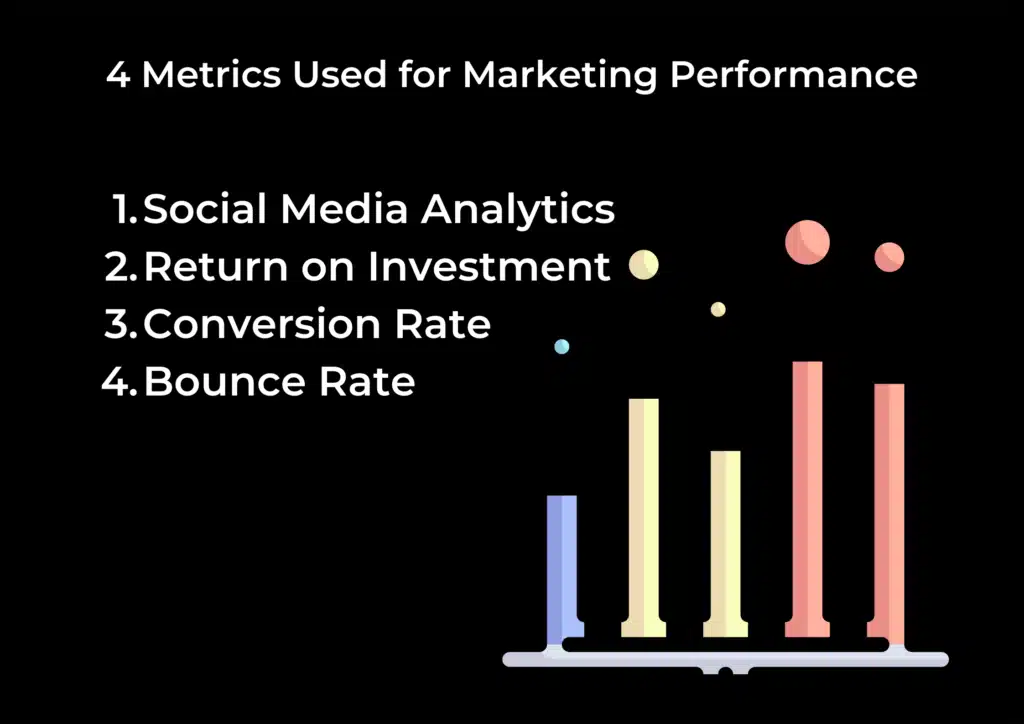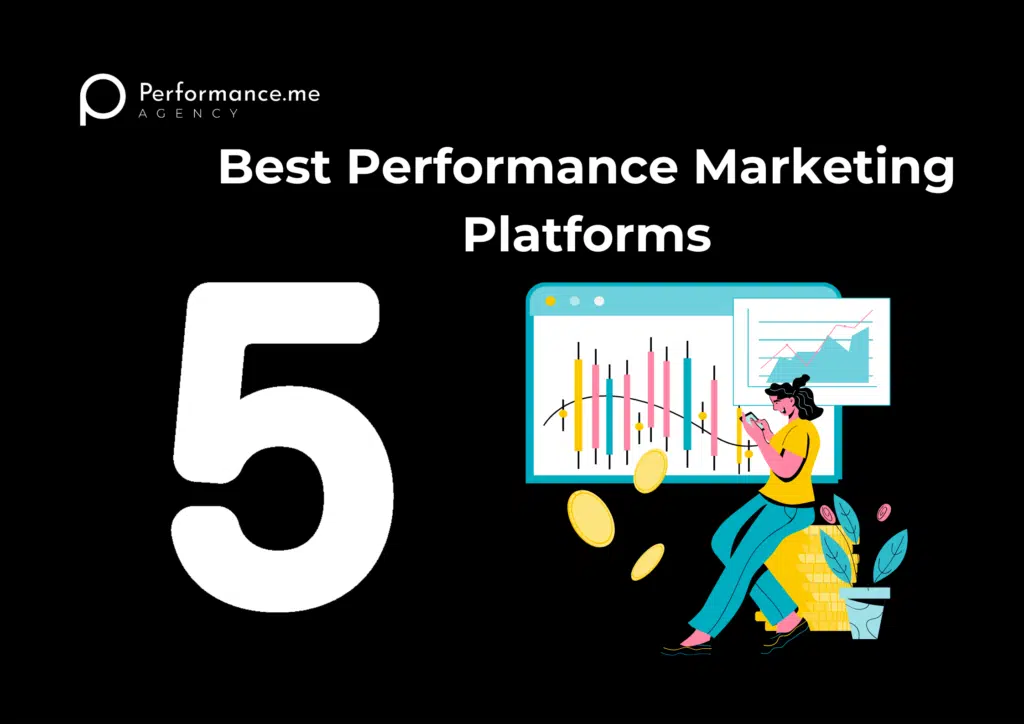Table of Content
- Marketing Performance
- Necessity to Evaluate the Performance of Marketing
- Metrics for Marketing Performance
- Frequently Asked Questions
- Quick Recap
If you have established a startup for a particular product, the key factor you should be concerned with is marketing it. Because you cannot grow a company without bringing visibility to your brand.
As the business world grows day by day, the role of marketing and its strategies is also spreading widely as per the needs and conditions.
Related Reads
- What Are PPC Ads and How Do They Work?
- 5+ Best Performance Marketing Case Studies Needs Research From Brands
What is Marketing Performance?
Marketing performance is the set of actual outputs achieved when the team works with specific marketing plans. It is evaluated with the help of certain metrics and key performance indicators. The performance may include creating an account, subscribing, downloading a particular application, or buying a product. The results of the marketing lie in the strategies and methods used to establish the campaigns.
While running a business, it’s very important to analyze its growth and success. So here are some of the reasons for evaluating the performance of your marketing.
Why is it Necessary to Evaluate the Performance of Your Marketing?

- Every company’s growth and plans depend on its marketing performance. Measuring the performance of the marketing program will help in planning the future goals and objectives of the company.
- Tracking the performance with the help of key performance indicators helps in understanding whether a new audience is becoming attracted and engaged with the company’s goods and services. By evaluating the performance of the marketing program at regular intervals, you will get to know the interests of target audiences.
- Marketing and non-marketing executives use various tools like KPIs to check the impact of marketing activities on the company’s profits and growth.
- Analyzing the performance will help to identify the flaws in the strategies that affected the results. There is a need to measure the performance and understand the negative deviations in your marketing program. So that you can change and modify it and use positive results as an asset to improve your further performance. It will also show you the strengths and weaknesses of the company’s products or services.
- Performance monitoring plays a crucial role in planning decisions based on budgets for future actions. It can also track whether a business is meeting its planned goals.
- It helps companies and brands increase their competitive intelligence and insights and become proactive in the market.
Since it is important to know and measure the performance of marketing, there are many ways to determine the performance of marketing campaigns.
Suggested Reads
- Guide to eCommerce Performance Marketing
- Brand Performance Marketing: How Does Branding Work with Performance Marketing?
4 Metrics Used for Marketing Performance

1. Social Media Analytics
Social media analytics involves measuring the performance of the marketing programs through likes, following tweets, signing up, etc. Social media experts gather data and information from the social media websites such as Facebook, Instagram, Twitter, etc. They also determine the impact of the actions through weekly traffic.
Some key factors of Social media analytics platforms are:
Dashboards
It helps to understand social media analytics through dashboards. The visualization charts, graphs, etc help a lot to analyze the performance of the marketing actions.
Segmentation
This factor helps to know and differentiate social media users based on their age, location, gender, etc. It can help to understand their interests based on these factors.
Behavioral analysis
It helps to identify the behavioral patterns of participants in social media. Examples include whether a user is a detractor, recommender, and many more.
Clustering analysis
Reveals and analyzes the hidden insights, conversations, and issues from the marketing performance.
2. ROI
ROI stands for Return on Investment which is the key element used to measure the performance to know the profitability of a particular investment. It helps in evaluating the reach of marketing campaigns and helps in planning the budget accordingly.
3. Conversion Rate
Conversion rate is a factor through which the percentage of the target audience who visited your site with an action can be evaluated. The actions associated with your site include signing up, subscribing, following, etc. The conversion rate will help to determine the reach of a particular marketing campaign.
It is calculated by dividing the number of conversions in a particular period by the total number of visitors on your site and then multiplying it by 100.
A good conversion rate can be considered in the range of 2% to 5%.
4. Bounce Rate
Through bounce rate, you will get to know the number of visitors who left your site without performing any actions. The bounce rate is calculated by dividing the total number of one-page visitors by the total number of entries on the websites.
A higher bounce rate has a negative impact on the websites. The lower bounce rate such as 26 % to 40 % is a positive result.
These are some of the metrics which measure the performance and efficiency of the marketing campaigns and improve the growth of your target audience.
Also Reads
Frequently Asked Questions
Why should I measure the marketing performance?
It is essential to measure marketing performance because it helps in analyzing the results of the marketing activities. It helps to understand the negative and positive impacts of the marketing program. You can change and modify the strategies according to the performance metrics.
What is the difference between conversion rate and bounce rate?
Conversion rate and bounce rate are the two metrics that help in measuring the performance of the marketing program. But they are opposite to each other.
Conversion rate gives the rate of people who visited the site and performed certain actions. A higher conversion rate means the marketing campaigns are working well.
Bounce rate is the percentage of people who visited and left the site immediately without performing any actions. If your site is having a higher bounce rate, it indicates the marketing campaigns are not working well.
What are the metrics measuring the performance of marketing campaigns?
There are many metrics that help in measuring marketing performance, but some of the most well-known include social media analytics, page reviews, conversion rate, Bounce Rate, ROI, and search engine traffic.
What is the difference between brand and performance marketing?
Advertising that focuses on producing quantifiable results, such as leads or sales, is known as performance marketing. Businesses that sell products or services online frequently utilise this model because it allows them to measure and monitor the success of their campaigns in real time.
The practise of building a favourable link between a business and its goods or services is known as brand marketing. Brand marketing frequently aims to build an emotional bond between customers and the business. Advertising, product design, and customer service are all effective ways to achieve this.
Wrapping Up
Monitoring the performance is as important as launching the marketing campaigns for the business. It should be done on a constant and regular basis. This will help to maintain the goals and modify the marketing strategies. So, you can start measuring the performance of your sites by considering some performance metrics and working on your marketing program.



